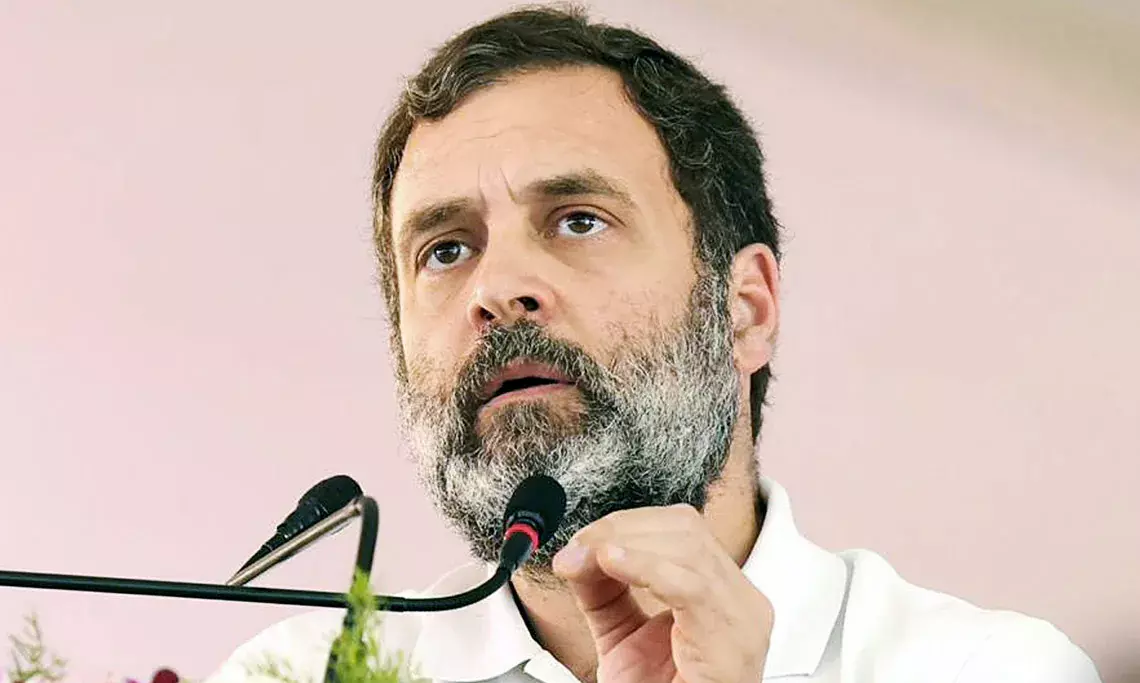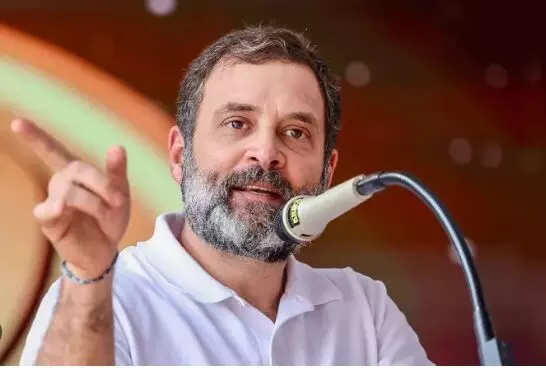
Defamation case: Gujarat HC to hear Rahul's plea on May 2
text_fieldsNew Delhi: The Gujarat high court will be hearing Congress leader Rahul Gandhi’s plea in the ‘Modi surname’ defamation case on 2 May.
The hearing date was adjourned to 2 May after senior lawyer Abhishek Manu Singhvi, appearing for Rahul Gandhi in the defamation case, argued in the court that the Congress leader's offense was not serious nor did it involve any "moral turpitude".
In his plea, Rahul Gandhi also sought a stay on his conviction.
According to the Indian Express, while seeking a stay on Gandhi’s defamation case, Singhvi pointed out that by denying Gandhi’s plea for a stay on his conviction in such a case of criminal defamation, the court would be “rewriting” the scope of section 389 of the Code of Criminal Procedure (suspension of sentence pending the appeal; release of appellant on bail).
Second, he submitted that Gandhi’s statement made in Kolar, Karnataka, had not invoked any identifiable class of people, adding that none of the three people named in the statement, Nirav Modi, Mehul Choksi and Vijay Mallya, was the complainant in the case.
Arguing that the trial was vitiated, as mentioned earlier, he submitted that the Surat court handed Gandhi the maximum punishment after conducting a hearing on the punishment aspect for only 10 minutes.
He further said that the offence for which Gandhi was awarded the maximum sentence of two years in jail was not serious nor did it involve any “moral turpitude”.
After hearing the arguments, the high court decided to adjourn the hearing to May 2 as advocate Nirupam Nanavati, the lawyer of complainant and Bharatiya Janata Party MLA Purnesh Modi, sought time to file a reply.
Purnesh Modi has lodged a complaint against Gandhi after he had allegedly asked in a rally in Karnataka’s Kolar in 2019, “Why do all the thieves, be it Nirav Modi, Lalit Modi or Narendra Modi, have ‘Modi’ in their names?”
Gujarat Police had FIR filed an under Indian Penal Code (IPC) sections 499 and 500 (dealing with defamation).
A day after his two-year sentence was announced, Gandhi was disqualified from the Lok Sabha.
The law states that if a member is convicted of any offence for two or more years, his or her seat will be declared vacant. One can only stay in the parliament if the conviction is suspended.








